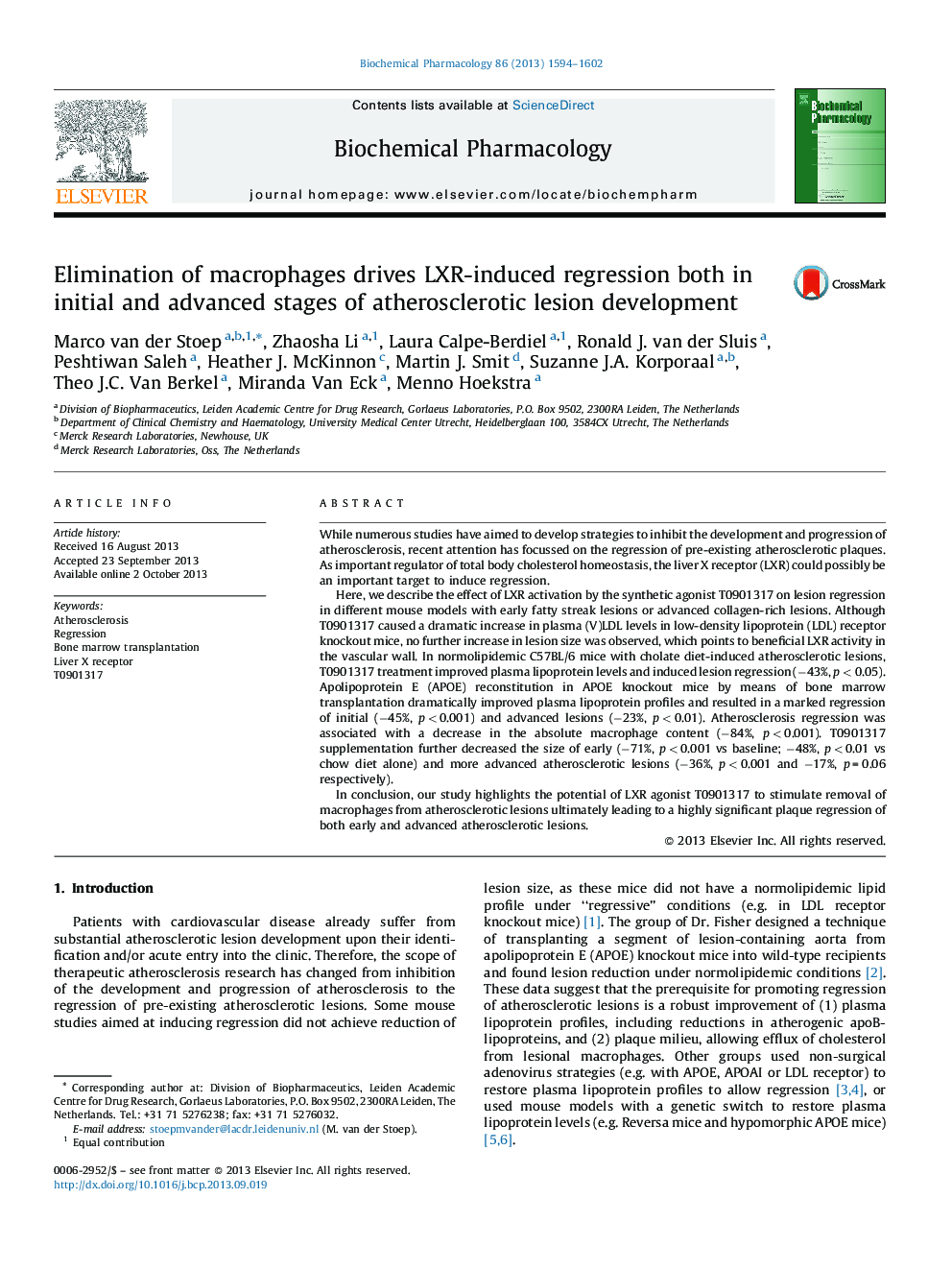| کد مقاله | کد نشریه | سال انتشار | مقاله انگلیسی | نسخه تمام متن |
|---|---|---|---|---|
| 2512453 | 1118355 | 2013 | 9 صفحه PDF | دانلود رایگان |

While numerous studies have aimed to develop strategies to inhibit the development and progression of atherosclerosis, recent attention has focussed on the regression of pre-existing atherosclerotic plaques. As important regulator of total body cholesterol homeostasis, the liver X receptor (LXR) could possibly be an important target to induce regression.Here, we describe the effect of LXR activation by the synthetic agonist T0901317 on lesion regression in different mouse models with early fatty streak lesions or advanced collagen-rich lesions. Although T0901317 caused a dramatic increase in plasma (V)LDL levels in low-density lipoprotein (LDL) receptor knockout mice, no further increase in lesion size was observed, which points to beneficial LXR activity in the vascular wall. In normolipidemic C57BL/6 mice with cholate diet-induced atherosclerotic lesions, T0901317 treatment improved plasma lipoprotein levels and induced lesion regression (−43%, p < 0.05). Apolipoprotein E (APOE) reconstitution in APOE knockout mice by means of bone marrow transplantation dramatically improved plasma lipoprotein profiles and resulted in a marked regression of initial (−45%, p < 0.001) and advanced lesions (−23%, p < 0.01). Atherosclerosis regression was associated with a decrease in the absolute macrophage content (−84%, p < 0.001). T0901317 supplementation further decreased the size of early (−71%, p < 0.001 vs baseline; −48%, p < 0.01 vs chow diet alone) and more advanced atherosclerotic lesions (−36%, p < 0.001 and −17%, p = 0.06 respectively).In conclusion, our study highlights the potential of LXR agonist T0901317 to stimulate removal of macrophages from atherosclerotic lesions ultimately leading to a highly significant plaque regression of both early and advanced atherosclerotic lesions.
Figure optionsDownload as PowerPoint slide
Journal: Biochemical Pharmacology - Volume 86, Issue 11, 1 December 2013, Pages 1594–1602